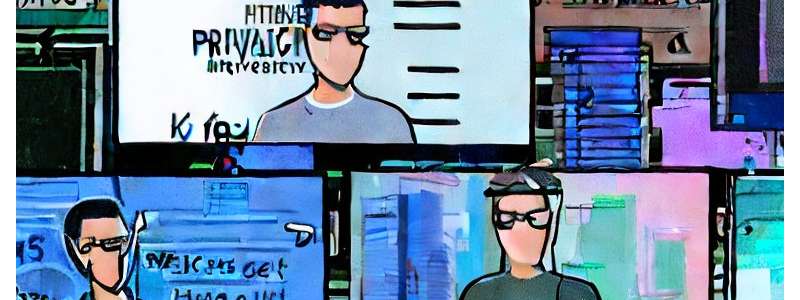virtual reality
Events

Co.ol.Lab 24 – Ko-Kreation mit älteren Erwachsenen für innovative Virtual Reality und KI-Anwendungen
Wir freuen uns diesmal auf einen Impuls zum Thema Gemeinsam gestalten: Ko-Kreation mit älteren Erwachsenen für innovative Virtual Reality und KI-Anwendungen von Lucie Kruse und Sebastian Rings, beide sind wissenschaftliche Mitarbeiter:innen an der MIN-FB Informatik, – Forschungsgruppe Human-Computer-Interaction
Die beiden berichten aus Projektarbeiten und Erfahrungen bei der Entwicklung von Virtual Reality (VR) Anwendungen zusammen mit Senior:innen. Wir erfahren welche verschiedenen Methoden, verwendet wurden und warum Ko-Kreation mit dieser Nutzergruppe wichtig ist. Außerdem teilen sie mit uns ihre Erkenntnisse wie sich Ko-Kreation in einem Forschungskontext umsetzen lässt. (Ein Transferfondsprojekt 2023)
via Zoom
Meeting-ID: 685 7800 4912
Kenncode: 52263593
Im Co.ol.Lab treffen sich an Ko-Kreativität interessierte Forschende und Mitarbeitende aus allen Fakultäten, Clustern oder Abteilungen der UHH. Auf einen thematischen Input folgt ein Austausch zu (ko-kreativen) Fragen oder Erfahrungen.
Institution
- UHH

GI VR/AR Workshop
The workshop of the special interest group Virtual Reality and Augmented Reality (VR/AR) of the Gesellschaft für Informatik e. V. (GI) is a platform for the exchange of information and ideas. Interested parties from science and practice meet once a year to discuss current results and projects from research and development with an expert audience.
Virtual Social Interaction by Sylvia Xueni Pan
From Virtual Reality to Perception Engineering by Steven M. LaValle
Institution
- HAW (Forum Finkenau)

Informatik-Kolloquium, Thorsten Strufe, KIT
Thorsten Strufe from the KIT in Karlsruhe will give a talk on privacy in the Metaverse.
Extended realities (XR), including Augmented reality (AR) and virtual reality (VR), are emerging technologies with a wide range of potential applications, including networking, gaming, healthcare, and education. However, as with any new technology, AR/VR also introduces new security and privacy challenges. AR and VR devices collect a wide range of personal data about users, including their physical movements, eye movements, and voice recordings. This data can be used to track users' activities, identify them, or even infer private attributes like health conditions or private preferences. Furthermore, XR applications integrate multiple modalities, such as audio, video, and haptic data streams, enlarging security and privacy exposure. Yet, there are always claims of how "anonymization" and "pseudonymization" were helping to achieve "GDPR compliance". In this talk I will present results from three of our recent studies, and we will discuss how claimed protection has proven and is ineffective under scrutiny.
CV:
Thorsten Strufe is professor of IT Security at Karlsruhe Institute of Technology (KIT/KASTEL), and adjunct professor for Privacy and Network Security at TU Dresden. He is a deputy speaker of the Excellence Centre for Tactile Internet with Human-in-the-Loop (CeTI), and a PI in the national IT security competence center KASTEL Security Research Labs.
His research interests lie in the areas of privacy and network security, especially in the context of social networking services and novel mixed reality applications. Recently, he has focused on studying privacy implications of user behavior and possibilities to provide privacy-preserving and secure networked services.
Previous posts include faculty positions at TU Dresden, TU Darmstadt, and Uni Mannheim, as well as postdoc/researcher positions at EURECOM (France) and TU Ilmenau.
Institution
- Computer Networks UHH

Informatik-Kolloquium: Interactive, feature-based 3-D visualization for rapid exploration of gridded atmospheric data
Visualization is an important and ubiquitous tool in the daily work of atmospheric researchers and weather forecasters to analyse data from simulations and observations. In this talk, I will present recent and ongoing work we are conducting at the Universität Hamburg’s Visual Data Analysis Group with respect to interactive 3-D visualization and feature detection using gridded atmospheric data. This includes methods for detection and interactive visual analysis of 3-D atmospheric fronts, as well as interactive 3-D analysis of simulated clouds and other volumetric data. Our methods are integrated into “Met.3D”, our open-source research software that makes novel interactive, 3-D, feature-based, and ensemble visualization techniques accessible to the meteorological community (https://met3d.wavestoweather.de). Since its first public release in 2015, Met.3D has been advanced within the German research projects “Waves to Weather (W2W)” and “Climate, Climatic Change, and Society (CLICCS)” and has evolved into a feature-rich visual analysis tool facilitating rapid exploration of gridded atmospheric data.
Speaker: Dr. Marc Rautenhaus
Bio:
Marc Rautenhaus leads the Visual Data Analysis Group at the Regional Computing Centre of Universität Hamburg. His research interests lie at the intersection of visual computing and weather and climate research, focussing on interactive 3-D visualization, feature detection, weather forecasting, and research software development of the meteorological interactive 3-D ensemble visualization framework Met.3D. He holds a master’s degree in Atmospheric Science from the University of British Columbia, Canada, and a PhD in Computer Science from the Technical University of Munich. Previous posts include researcher/postdoc positions at the German Aerospace Centre (DLR) and the Technical University of Munich.
Institution
- Computer Networks UHH

VISTA seminar & School of Graduate Research (VISOR) matchmaking event
The VISOR initiative is designed to strengthen interdisciplinary collaboration in AI research across Hamburg by fostering partnerships between PIs, enabling innovative projects, and preparing for major grant applications. This event will be a valuable platform to learn more about VISOR, the current call for projects, and how to get involved.
Prof. Luisa Lucie-Smith of UHH and Dr. Sebastian Götschel of TUHH will offer exciting insights into their research on ML in physics. Following the talks, PIs will have an opportunity to meet and network over lunch and learn how they can team up with other PIs to apply for the opportunities VISOR has to offer.
Participation (including lunch) is free, but registration is required. Registration deadline for in-person attendance: February 20. Remote (zoom-only) registration will be possible until the end of the event.
For further information and registration, please see the Indico page.
Institutions
- UHH
- TUHH

Universität Hamburg
Adeline Scharfenberg

Universität Hamburg
Adeline Scharfenberg

Universität Hamburg
Adeline Scharfenberg